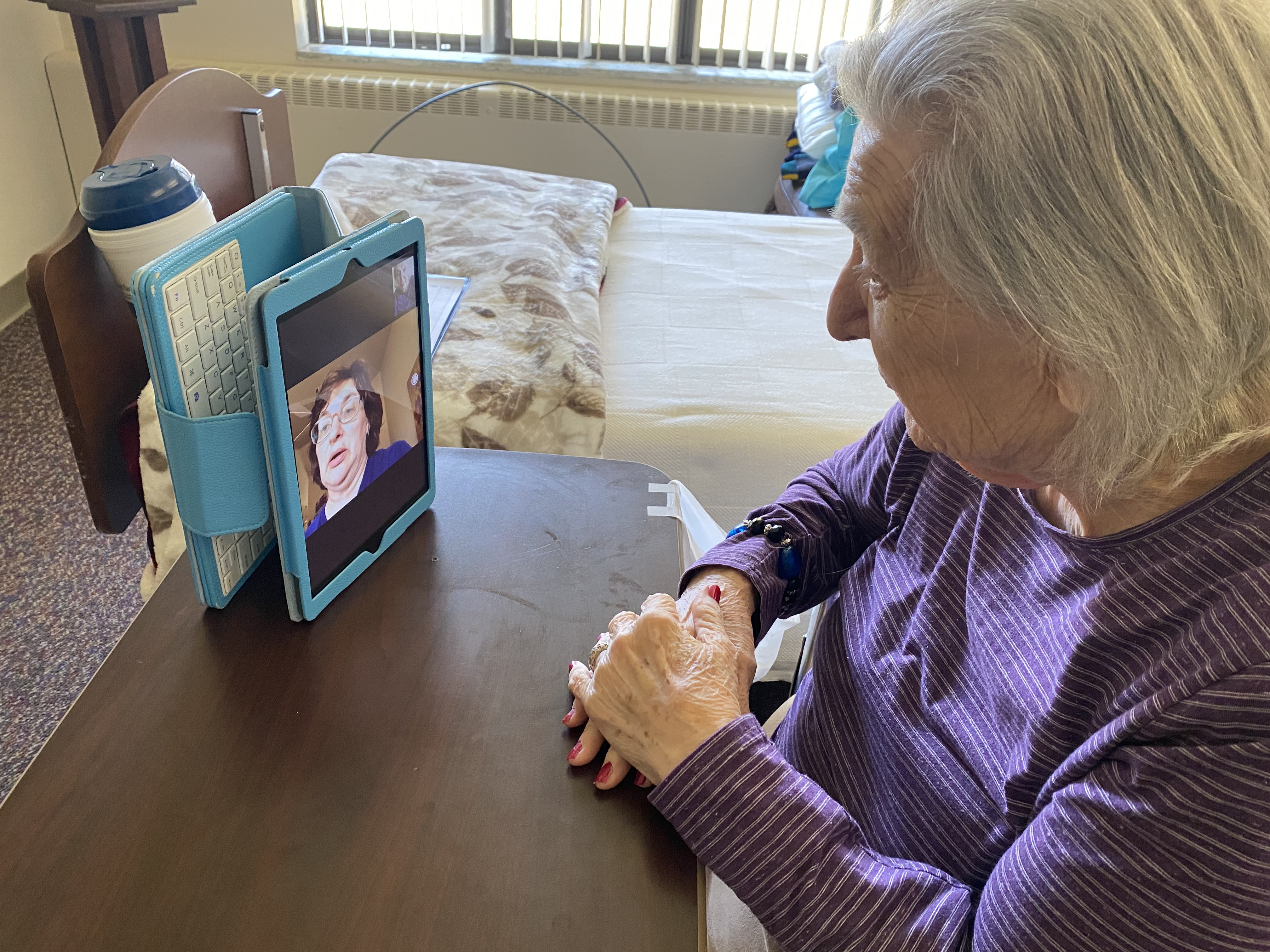In an effort to protect vulnerable seniors from COVID-19, living facilities take extra precautions while maintaining sense of normalcy
WATERFORD — The coronavirus presents increased concern for everyone’s safety, but particularly for the most vulnerable — namely, the immunocompromised, those with underlying health concerns, the very young, and those 65 years or older.
In light of those facts, senior living facilities have been ahead of the curve in taking necessary measures to protect their elder residents.
On March 14, Gov. Gretchen Whitmer signed an executive order prohibiting visitors from entering senior care facilities. At Lourdes Senior Community in Waterford, the residents range from ages 72 to 101. Prior to the governor’s order, the facility had already asked families and others not to visit the facility for the safety and health of its residents.
While residents are no longer permitted on-site visitors, both staff and family have found creative ways to keep residents from the loneliness of lockdown.

Families not only visit with their loved ones from outside of windows, but they also are able to see them through the use of iPads.
“Thank God for technology these days; it’s probably very different from when the epidemic hit in the 1920s,” Colleen Burke, director of development at Lourdes, told Detroit Catholic.
Burke said Lourdes purchased additional iPads in order to allow residents to use Skype and FaceTime with their family members.
Burke said the community has four units: independent living, memory care, assisted living and a rehab and health care center. While the impact of the global pandemic doesn’t register in the same way for all residents — some are unable to think back to a time before the pandemic, and for others, the concept is simply confusing, Burke said — the same protocols have been implemented across the four facilities.
Though family or volunteers aren’t currently allowed in the facility, exceptions can be made if a resident is actively dying, Burke said.
“With every employee who comes to work, their temperature is taken,” Burke said. “If they have any kind of a fever — 99.4 or above — they are asked to go home. The residents’ temperatures are taken two to three times a day.”
Burke said the facility used to only take temperatures about once a month, but adjusted their protocol as part of its COVID-19 precautions.

Burke said residents are able to watch Mass and pray the rosary via livestreams on their in-unit TVs. While it is not possible to distribute Communion, Burke said a pastoral care team is allowed to bless residents.
For now, everything the residents do is separate from one another, with the exception of one-on-one time with the staff.
“When they play bingo, they bring them to the doorways and they call the numbers that way,” Burke said. “So they are not in the same room, but they still get to do bingo and they do exercises the same sort of way so we are not gathering people in groups.”
At the Senior Clergy Village in Livonia, many of the same protocols are in place, but with one distinct difference.
According to the facility’s president, Carol Ann Fausone, the retired archdiocesan priests who live at the home have the benefit of being able to celebrate Mass.
“Over the phone, you can’t do confessions,” Fausone said. “In our chapel, we are blessed because (the priests) can say Mass and they can meet with their brothers.”
The priests are also able to see one another in common rooms or for dinner in their apartments. Fausone said there is still a sense of community while practicing safe social distancing.
“We are doing daily checks,” Fausone said. “They (the priests) are taking care of each other, checking on each other.”
“We try to take care of them — they are great treasures,” Fausone said. “Until COVID-19, half of our priests would go to other parishes on the weekend and fill in, and so this is a hard hit because they can’t do that anymore.”

At Lourdes, Burke said that while the situation isn’t ideal, there is a silver lining.
“It’s almost slowed things down,” Burke said. “You actually do get that one-on-one time that gets lost when you have 30 people playing bingo. You can talk to the person, and have a more intimate conversation.”
Staff are able to spend time reading, praying or visiting with residents, or, in the case of female residents, doing their nails or hair, Burke said.
Morale among the staff is good, she added.
“I think, in the world, everyone is just a little nicer and softer to people,” Burke said. “I think the same thing is happening here. People are a little more supportive of each other and kinder to each other.”
Even with the increased individual attention, staff can't be with residents around the clock, which does lead to loneliness for some.
To combat that, Burke encourages people to write letters, especially to residents who don’t get many visitors to begin with.
To write to a resident at any senior facility, nursing home or at the Senior Clergy Village, Burke said, people can find mailing addresses on their websites. Letters can simply be addressed to “any resident.”










